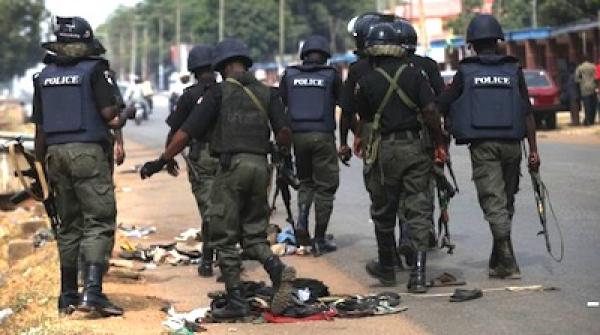WHAT ARE THE LIMITS OF POLICE POWERS IN THE CONTEXT OF PEACEFUL PROTESTS [LIKE #EndSarsProtests]
The right to protest is a fundamental human right [and part of freedom of expression and Nigerians’ right to participate in the fight against corruption] guaranteed by the Nigerian Constitution 1999 [as amended] and human rights treaties to which the country is a state party.
The right to peaceful protest limits police powers under the Nigerian Constitution 1999 and human rights treaties to which Nigeria is a state party including the International Covenant on Civil and Political Rights and the African Charter on Human and Peoples’ Rights.
Nigerians’ right to protest is guaranteed under Section 40 of the Nigerian Constitution, Article 21 of the International Covenant on Civil and Political Rights, and Article 11 of the African Charter on Human and Peoples’ Rights.
Under all of these legal regimes, the police cannot arbitrarily restrict Nigerians’ right to protest. The police’s main job during a protest is to protect Nigerians’ rights and de-escalate any threat of violence.Any restrictions on the right must be provided by law and be proportionate to one or more of these legitimate aims namely: interests of national security, public safety, public order, the protection of public health or morals or the protection of the rights and freedoms of others.
There is therefore no legal basis or pressing social need to justify any restriction on peaceful protests like #EndSarsProtests.All of the above cited legal regimes agree that the restriction imposed must be the least intrusive among the measures that might achieve the relevant protective function and the onus is on the State [Nigerian authorities and the police] to justify the same.
As regards the police’s power to regulate protests, the UN Human Rights Committee has stated that the failure of protesters to notify authorities or seek authorisation does not render the protest unlawful. Nigerian domestic law and jurisprudence align with this.
As regard the police’s power to arrest protesters, the mere act of participating in or organising a peaceful protest cannot be criminalised. The police have no power to arrest anyone simply for exercising their right to peaceful protest.
Arresting peaceful protesters risks having a chilling effect on the exercise of the right of protest and freedom of expression. As regards the power to stop and search, police officers cannot exercise this power without a reasonable suspicion of wrongdoing or crime.
As regards the power to disperse protests, law enforcement agencies should always first seek to isolate and separate violent protesters from others and allow peaceful protest to continue. Mere disruptions or failure to abide by applicable formalities do not justify dispersal by the police. As regards the power to use force at protests, protests should ordinarily be managed without resorting to force.
Under Nigerian law and international law, any use of force should meet the principles of legality, necessity and proportionality. Particularly, lethal force may be employed only as a last resort, subject to strict or absolute necessity. The use of disproportionate force during protests may have a chilling effect on protesters themselves and others. President Buhari government has a positive duty to facilitate the exercise of the right to peaceful protest.
This positive duty entails inter alia allowing peaceful protests to take place in the protesters’ desired location – even if it involves some disruption to daily activities and is not formally authorised – and protecting protesters from both State abuses and private interferences.
President Buhari government also has a legal duty to facilitate peaceful protests without fear of physical violence from counter-demonstrators. The police must therefore take reasonable steps to protect protesters from threats of disruption or disorder from others.
Protesters whose rights have been violated by the police have the right to an effective remedy including access to justice and compensation. If you believe your rights have been violated, contact legal aid nearest to you or feel free to contact us at info@serap-nigeria.org

